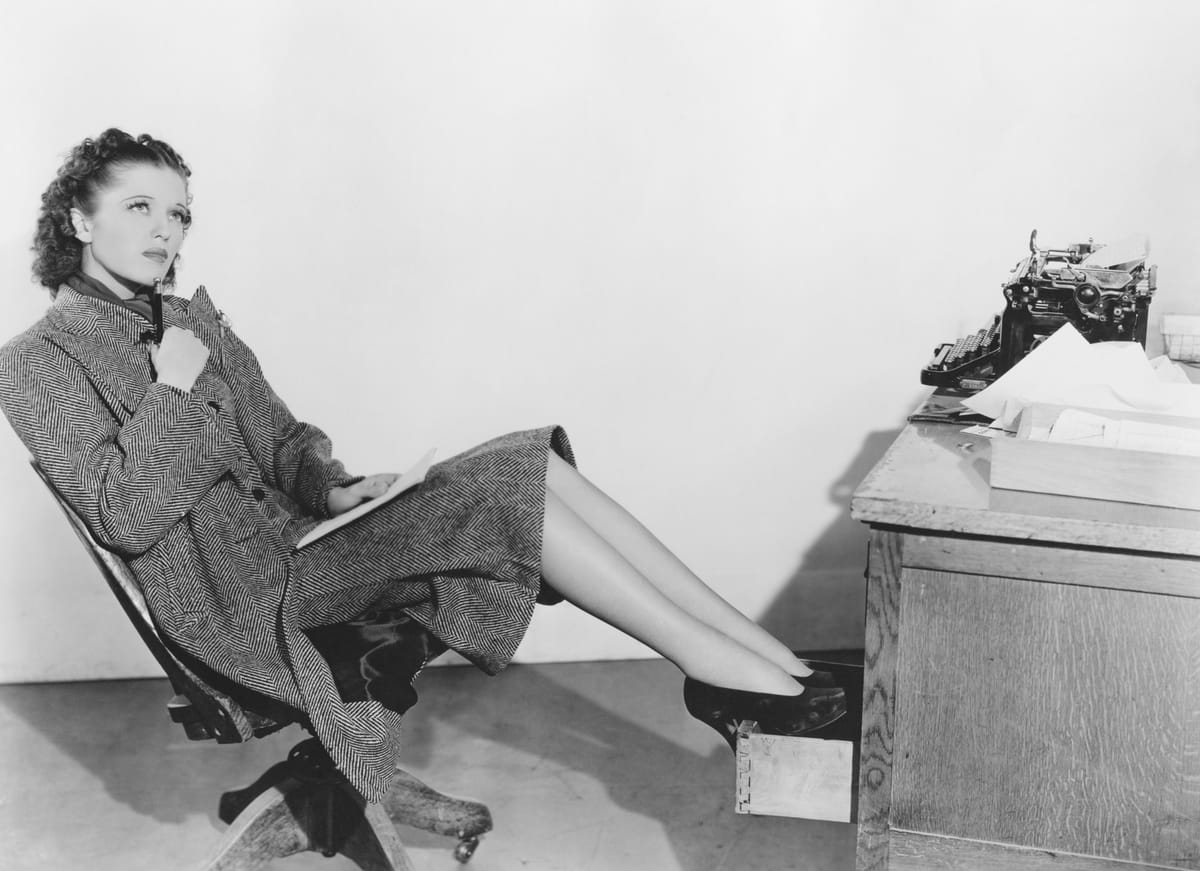In New York’s Ratland, the Glass Cliff is Alive and Well
How a sorry affair over rats reflects an even sorrier state of women’s equality.

In 2023, New York mayor Eric Adams named Kathleen Corradi as the city’s “rat czar.” The job opening had been announced with much fanfare and covered enthusiastically by the media. "Do you have a virulent vehemence for vermin?” the posting queried. “If so, your dream job awaits.”
To the tune of $155,000 in annual salary and a budget of $3.5 million for so-called “public awareness on rat migration,” Corradi would take on the Sisyphean task of ridding the city of millions of rodents that for decades had made the city their own.
In September, Corradi quietly quit. Of course she did. The war on rats— especially considering the resources she was given—was never winnable.
Corradi won’t go down in New York history as the person who saved us from the whiskered usurpers of the sidewalks. She likely won’t go down in history much at all—a prime example of the glass cliff phenomenon.
Just like the rats, the glass cliff phenomenon is alive and well—and just like the rats, it looks like it’s here to stay.
The path to failure
The phrase “glass cliff” was coined in 2005 by the British psychologists Michelle Ryan and Alex Haslam who noticed a grim pattern: More women were being elevated to positions of power in business and politics when the odds were stacked against them. Indeed, when the odds of success were slim to none.
If the nefarious glass ceiling kept women out before they’d stepped in, the glass cliff ejected them after they’d taken the very job everyone else ran away from.
Over the years, the theory has been illustrated over and over: Marissa Mayer was appointed to the position of CEO at Yahoo in 2012 when the company was already in steep decline. Who can forget Linda Yaccarino’s brief tenure as CEO of X during which she was tasked with building an “everything app.” Good luck with that.
In politics, Theresa May inherited the near impossible task of steering the U.K. through Brexit after David Cameron resigned. And love her or loathe her, Liz Truss took over a chaotic 10 Downing Street after Boris Johnson left amid a swirl of scandals. Kamala Harris, stepping in at the 11th hour to replace an ailing Joe Biden in the 2024 presidential election? Surely that has a whiff of glass cliff, too.
In each case, women were elevated to the top job at moments of heightened risk—and then judged harshly when they couldn’t single-handedly reverse years of entrenched problems.

Swarms everywhere
So how does this all relate to the rats? Let’s start with a statistic.
About three million rats are thought to be living across the five boroughs of New York City, but ask any local and that feels like a conservative estimate. Rats are everywhere and they’re shameless.
On a walk back from a recent dinner, I saw a rat scuttle up to someone experiencing homelessness and audaciously grab a pizza crust right out of that person’s hand just as they were about to take a bite. A few blocks from where I live, a local paper has been reporting on a “swarm” of rats. (One estimate put the number at 50 in a single cluster.) The wily beasts have apparently made this area their home because of inadequate waste management.
Rats contaminate food, damage property and spread diseases. In 2023, a record two dozen New Yorkers contracted leptospirosis, a serious infectious disease spread by rats that can, in the worst cases, cause kidney failure and meningitis.
I am, of course, no expert on pest control, but one explanation for the incessant rat problem that comes up every time anyone discusses it, is that New York’s waste management system is woefully inadequate. From the Bronx to Brooklyn, trash is a stalwart feature of sidewalks. It’s a hazard, it stinks, and it's a delectable buffet for the furry little monarchs of the city.

'Send the rats packing'
When Kathleen Corradi was handed the challenge of—as Adams put it— sending the rats packing, she was given an initial budget of $3.5 million. In a city that budgets billions for sanitation alone, $3.5 million is a rounding error. It’s not even half the cost of a modest Manhattan townhouse.
All things considered, Corradi probably delivered about as well as she could have. She spearheaded an effort to greenlight birth control for rats. She tried her darndest to support Adams to make headway on the trash and food waste issue. By January, calls to the government’s designated services line used, amongst other things, to report rat-related issues reportedly fell by a not insignificant 24% compared with the previous year. A recent report from the mayor’s office also noted that the city’s responses to rodent complaints were getting swifter. Last year, the city hosted a National Urban Rat Summit.
But let’s be honest, Corradi was set up to fail.
Before you dismiss my insight as sour grapes from a grumpy feminist journalist, know this: It wasn’t that long ago that I thought we’d truly started to move beyond the glass cliff phenomenon. Surely, I thought, we’re no longer throwing women under the bus and treating them as expendable widgets to be replaced by men as soon as headwinds abate.
It’s true that some recent research suggests that the glass cliff has become, in recent years, less insidious. But Corradi’s fate provides evidence that it is, in fact, not a relic of the past—it is a recurring feature of the present, in business, in politics, and yes, even in pest control.
In the long and winding saga of New York City’s war of rats, it might be tempting to consider the inaugural rat czar to be but a footnote—a punchline even. Unfortunately, it’s so much bigger than that. 🐀







